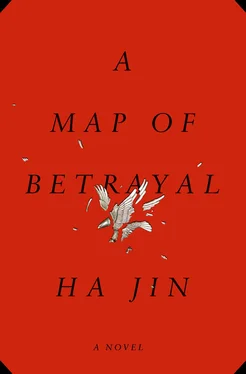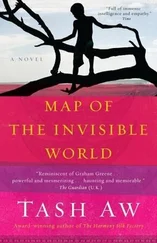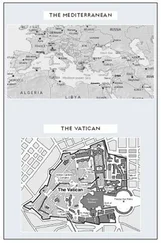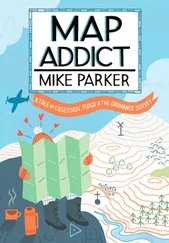“Yes, in the late fifties his higher-ups informed him about the two of you. When he died, he assumed our brother was still alive. He often mentioned your mother in his diary.”
“My mom had a hard life.” She paused, as though expecting my response, but I didn’t know what to say. We were lying on the brick bed in the dark, two feet apart. The room was so quiet that there was only the tick-tock of the wall clock.
Manrong continued, “Mom often said my dad was a distinguished man with a degree from Tsinghua University. That was really something. I don’t know who else in our home county went to Tsinghua. On her deathbed my mother said to me, ‘When you see your dad someday, tell him I was a good daughter-in-law to his parents and a good wife to him.’ Well, I wish I could’ve let him know that.”
“I went to Maijia Village in Linmin last month,” I said. “I was told that you and your mother had left because our brother died.”
“He was born runty, not like me, although we were twins. In the fifties we lived decently on the money from the government. But when the famine struck, we became worse off than the villagers, because we couldn’t grow crops and money became worthless, like straw paper. Our brother and I were eleven that year, both skinny like bags of bones, hungry all the time. It was reported that lots of people had died of hunger, so Mom was terrified. Then our brother died and my mother almost lost her mind with grief. When Uncle Mansheng asked us to join his family here, we left Maijia right away.”
“It was a smart move,” I said. “More than two hundred villagers starved to death in the following years.”
“As a matter of fact, later Mom told me there was another reason we’d moved.”
“What’s that?”
“There was a man in the village, Uncle Weifu, who was from our Shang clan, a distant cousin of our father’s. I remember him, a quiet, humble man. He was a bachelor and very kind to us. He often came to help Mom with household work, like thatching the roof, digging ditches to drain rainwater out of our yard, killing a hog for the Spring Festival. He was a handsome man, tall and muscular, with a straight back and sparkling eyes. His family was so poor he couldn’t find a girl willing to marry him. The village was whispering about him and Mom. The two were fond of each other for sure. Mom later told me that Uncle Weifu had asked her to marry him, but she’d never do that because she was still married to our dad. She said to him, ‘What if my husband comes back one day?’ In spite of everything, she couldn’t help but develop a soft spot in her heart for Uncle Weifu and would get heady with joy whenever he was around. She confessed to me that if we hadn’t moved away, soon enough she might not have been able to restrain herself. She dreaded a scandal.”
Something surged up in my chest, and tears welled out of my eyes, bathing my face. I covered my mouth with my palm, but still Manrong heard me sobbing.
“Why are you crying?” she asked.
“I feel so sad for your mom. She was a good woman. I wish she had lived differently.”
“You’re a good woman too. The moment I saw you I knew you were someone I could trust.” She stretched out her hand and gripped my arm.
We went on talking. Manrong said life was much better now, but most people were unhappy because of “the unfair distribution of wealth.” I was impressed by her use of that phrase. She hadn’t even gone to high school, but she liked reading books, especially romance novels from Taiwan and Hong Kong, so she was articulate and at times could be eloquent.
I WENT TO MANRONG’S SHOP the next morning, eager to spend more time with her. She had hired two full-timers and also farmed out work to housewives in the neighborhood, paying them piecework rates. The sewing machines were purring in the side room as Manrong and I sat at the counter chatting. Now and then a customer stepped in, and she turned away to handle business while I resumed watching the street. People passed back and forth, and there were also panniered donkeys and mules, whose hooves clip-clopped on the cobbles. As a three-horse cart loaded with stuffed gunnysacks was wobbling by, I noticed a Mongolian pony branded with “283” on its haunch; perhaps the little shaggy nag had served in the army and had been decommissioned. Across the street some vendors squatted behind their wares along the sidewalk. They were selling chickens and ducks, tobacco leaves, hothouse vegetables (mostly cucumbers, leeks, bell peppers, and oyster mushrooms), wicker cages, and willow baskets. From time to time a voice cried out at potential buyers.
Through our conversation I learned that Manrong’s twin daughter, Juli, was a migrant worker in Guangdong province. She was in Dongguan, a city near Guangzhou, doing a factory job. The girl used to come back once a year, at the Spring Festival, but this year she had not returned, saying she’d have only a week off and the long trip would have tired her out, so she decided just to send her parents money and to get some rest in her dorm during the holiday. As for her son, Benning, my sister was unclear about where he was. He seemed to be based in the south and traveled a lot, sometimes on ships going abroad and sometimes in different Chinese cities. Perhaps he was with the merchant marine. His mother hadn’t seen him for more than two years but was certain that he was doing fine. Among her three children, he was the smartest, had gone to college, and might have a bright future. In the past his letters had been forwarded to his parents by his sister Juli, so Manrong never had his address and phone number.
Around midmorning the next day, my niece Juya took me to the Songhua, saying we should watch the river opening its frozen surface, which she assured me was a one-of-a-kind spectacle. It was still chilly in mid-April, and many people were wearing heavy coats and wrinkled calf-high boots. On the streets some men still wore fur hats. Juya and I headed north, taking shortcuts whenever we could. She was walking ahead, picking the way. The backstreets were a wholly different scene from the downtown, many houses ramshackle and enclosed by slapdash wooden fences, some windows still covered outside by tattered quilts, and heaps of trash everywhere, some four or five feet high. Besides muddy puddles there were half-thawed feces on the narrow streets, and it was hard to pick our way through the sludge. The down and dirty alleys brought to mind a swamp of compost giving off miasmic fumes. Just a few blocks from the bustling commercial district, the back alleys were like a ghetto without any drainage or sanitary service. If all the garbage and waste remained here, disease might break out in the summer. I’d seen similar scenes elsewhere in China — behind the shiny façade were the hapless people jettisoned by the ship of success.
It was blustery on the river; howling gusts of wind buffeted trees and people’s hair and coats. Time and again large chunks of ice were tossed up and splashed the dark greenish water. I saw a number of fish, carp and pike and bass, floating by, belly-up, crushed dead by the ice. The river was roaring, and if I closed my eyes, it sounded like an ancient battle in full swing with all the clangs and clatters of blood-drawing metal. It was terrifying to see the immense body of water churning small icebergs and rushing them eastward, smashing whatever they met along the way, and gliding against the backdrop of gray woods on the other shore, where patches of snow were still visible.
Behind us, the sloping riverbank was covered with rocks, and up beyond the slope, on the esplanade, some kiosks stood, though they were unmanned. There was also a restaurant that would open to tourists in late May. Atop that structure squatted a loudspeaker that must have remained voiceless for the whole winter. On the west of the pavement spread a small cemetery, and in its center stood a tall bronze statue of a Russian soldier against an obelisk, wearing a rain cape and holding a submachine gun that had a thick, round magazine. A flock of crows perched on his helmet, shoulders, and arms, cawing hungrily. Around us people were all excited, some jabbering, some shouting, and some snapping photos of the floating ice blocks. Downriver to the east, across the water, was a cement factory where two smokestacks were spouting whitish fumes.
Читать дальше











